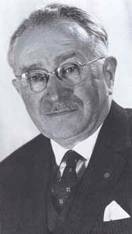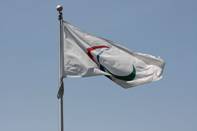Учнівська Вікі-стаття "Sport for Disabled people"
Зміст
Назва проекту
Paralympics
Автори проекту
Мізьов Микола, Бендерова Марія, Ліподат Віталій
Тема дослідження
Sport and Paralympic games as a way for the disabled to feel themselves active members of society
Проблема дослідження
Загальноприйняте в суспільстві відношення до людей з обмеженими фізичними можливостями як до неповноцінних людей. Недостатнє висвітлення даної проблеми.
Гіпотеза дослідження
Люди з обмеженими фізичними моливостями можуть як і звичайні спортсмени показувати високі результати
Мета дослідження
Довести, що люди з обмеженими фізичними можливостями можуть бути активними членами суспільства як в галузі спорту, так і в інших сферах життя.
Результати дослідження
В результаті проведеної роботи ми дізналися багато нового про параолімпійський рух та папаолімпійців. Ми впенилися, що іх досягнення можуть бути вражаючими.
The Paralympic Games is a major international multi-sport event, involving athletes with a range of physical and intellectual disabilities, including mobility disabilities, amputations, blindness, and cerebral palsy. There are Winter and Summer Paralympic Games, which since the 1988 Summer Games in Seoul, South Korea, are held immediately following the respective Olympic Games. All Paralympic Games are governed by the International Paralympic Committee (IPC). The Paralympics have grown from a small gathering of British World War II veterans in 1948 to become one of the largest international sporting events by the early 21st century. Paralympians strive for equal treatment with non-disabled Olympic athletes, but there is a large funding gap between Olympic and Paralympic athletes. The Paralympic Games are organized in parallel with the Olympic Games, while the IOC-recognized Special Olympics World Games include athletes with intellectual disabilities, and the Deaflympics include deaf athletes. The present formal explanation for the name "Paralympic" is that it derives from the Greek preposition παρά, pará ("beside" or "alongside") and thus refers to a competition held in parallel with the Olympic Games. The Summer Games of 1988 held in Seoul was the first time the term "Paralympic" came into official use.
Athletes with disabilities did compete in the Olympic Games prior to the advent of the Paralympics. The first athlete to do so was German American gymnast George Eyser in 1904, who had one artificial leg. Hungarian Karoly Takacs competed in shooting events in both the 1948 and 1952 Summer Olympics. He was a right-arm amputee and was able to shoot left-handed. Another disabled athlete to appear in the Olympics prior to the Paralympic Games was Liz Hartel, a Danish equestrian athlete who had contracted polio in 1943 and won a silver medal in the dressage event.
The first organized athletic day for disabled athletes that coincided with the Olympic Games took place on the day of the opening of the 1948 Summer Olympics in London, United Kingdom. German born Dr. Ludwig Guttmann of Stoke Mandeville Hospital, who had been helped to flee Nazi Germany by the Council for Assisting Refugee Academics (CARA) in 1939, hosted a sports competition for British World War II veteran patients with spinal cord injuries. The first games were called the 1948 International Wheelchair Games, and were intended to coincide with the 1948 Olympics. Dr. Guttman's aim was to create an elite sports competition for people with disabilities that would be equivalent to the Olympic Games. The games were held again at the same location in 1952, and Dutch veterans took part alongside the British, making it the first international competition of its kind. These early competitions, also known as the Stoke Mandeville Games, have been described as the precursors of the Paralympic Games. Milestones There have been several milestones in the Paralympic movement. The first official Paralympic Games, no longer open solely to war veterans, was held in Rome in 1960. 400 athletes from 23 countries competed at the 1960 Games. Since 1960, the Paralympic Games have taken place in the same year as the Olympic Games. The Games were initially open only to athletes in wheelchairs; at the 1976 Summer Games, athletes with different disabilities were included for the first time at a Summer Paralympics. With the inclusion of more disability classifications the 1976 Summer Games expanded to 1,600 athletes from 40 countries. The 1988 Summer Paralympics in Seoul, South Korea, was another milestone for the Paralympic movement. It was in Seoul that the Paralympic Summer Games were held directly after the Olympic Summer Games, in the same host city, and using the same facilities. This set a precedent that was followed in 1992, 1996 and 2000. It was eventually formalized in an agreement between the International Paralympic Committee (IPC) and the International Olympic Committee (IOC) in 2001, and was recently extended through 2020. The 1992 Winter Paralympics were the first Winter Games to use the same facilities as the Winter Olympics. Winter Games The first Winter Paralympic Games were held in 1976 in Örnsköldsvik, Sweden. This was the first Paralympics in which multiple categories of athletes with disabilities could compete. The Winter Games were celebrated every four years on the same year as their summer counterpart, just as the Olympics were. This tradition was upheld until the 1992 Games in Albertville, France; after that, beginning with the 1994 Games, the Winter Paralympics and the Winter Olympics have been held in those even numbered years separate from the Summer Games.
The present formal explanation for the name is that it derives from the Greek preposition παρά, pará ("beside" or "alongside") and thus refers to a competition held in parallel with the Olympic Games. The Summer Games of 1988 held in Seoul was the first time the term "Paralympic" came into official use.
“Spirit in Motion” is the motto for the Paralympic movement. The symbol for the Paralympics contains three colours, red, blue, and green, which are the colours most widely represented in the flags of nations. The colours are each in the shape of an Agito (which is Latin for "I move"). The three Agitos circle a central point, which is a symbol for the athletes congregating from all points of the globe. The motto and symbol of the IPC were changed in 2003 to their current versions. The change was intended to convey the idea that Paralympians have a spirit of competition and that the IPC as an organization realizes its potential and is moving forward to achieve it. The vision of the IPC is, "To enable Paralympic athletes to achieve sporting excellence and to inspire and excite the world." The Paralympic anthem is "Hymn de l'Avenir" or "Anthem of the Future". It was composed by Thierry Darnis and adopted as the official anthem in March 1996. Relationship with the Olympics In 2001 the International Olympic Committee (IOC) and the International Paralympic Committee (IPC) signed an agreement which guaranteed that host cities would be contracted to manage both the Olympic and Paralympic Games. This agreement will remain in effect until the 2012 Summer Olympics and will be further extended to the 2014 Winter Olympics and 2016 Summer Olympics. The IOC has written its commitment to equal access to athletics for all people into its charter, which states,“ The practice of sport is a human right. Every individual must have the possibility of practising sport, without discrimination of any kind and in the Olympic spirit, which requires mutual understanding with a spirit of friendship, solidarity and fair play....Any form of discrimination with regard to a country or a person on grounds of race, religion, politics, gender or otherwise is incompatible with belonging to the Olympic Movement.” While the charter is silent on discrimination specifically related to disability; given the language in the charter regarding discrimination it is reasonable to infer that discrimination on the basis of disability would be against the ideals of the Olympic Charter and the IOC.[32] This is also consistent with the Paralympic Charter, which forbids discrimination on the basis of political, religious, economic, disability, gender, sexual orientation or racial reasons. Chairman of the London organising committee, Sebastian Coe, said about the 2012 Summer Paralympics and 2012 Summer Olympics in London, England, that“ We want to change public attitudes towards disability, celebrate the excellence of Paralympic sport and to enshrine from the very outset that the two Games are an integrated whole.
Висновки
Люди з обмеженими фізичними можливостями є повноцінними членами суспільства.

